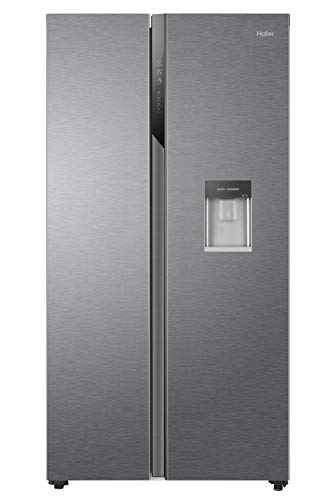The Comprehensive Guide to Refrigerators: Types, Features, and Maintenance
Fridges, typically referred to as fridges, play a critical role in modern homes by preserving food, reducing waste, and keeping a comfy living environment. read on have evolved considerably over the years in regards to technology, effectiveness, and design. This article aims to supply a comprehensive summary of the numerous types of fridges, their features, and ideas for maintenance, making it an indispensable resource for homeowners.
Types of Refrigerators
Refrigerators are available in various designs and configurations, each catering to different requirements and preferences. Below is an introduction of the most common types of refrigerators readily available on the marketplace today.
| Type of Refrigerator | Description |
|---|---|
| Top-Freezer | This is the traditional fridge style where the freezer compartment is found on top. It is normally the most affordable choice, making it popular for budget-conscious consumers. |
| Bottom-Freezer | In this style, the freezer is located at the bottom, permitting easy access to fresh items at eye level. This type frequently features pull-out drawers for easier company. |
| Side-by-Side | This model has the freezer and refrigerator compartments organized vertically next to each other. It offers simple access to both areas and frequently features water and ice dispensers. |
| French Door | Integrating the benefits of a bottom-freezer design with large doors on the refrigerator area, French door fridges offer ample area and versatility, making them perfect for big households. |
| Compact | Also referred to as mini-fridges, these smaller sized systems are ideal for dorm rooms, offices, or as secondary refrigerators in homes. They have actually restricted storage however are energy-efficient. |
| Smart Refrigerators | Equipped with smart technology, these fridges offer features such as touch screens, web connectivity, and app controls. They can provide alerts for expired food and other wise performances. |
Key Features to Consider
When selecting a refrigerator, it is necessary to think about numerous functions that can boost usability and performance. Here are some crucial features to look for:
Energy Efficiency
- Try to find models with an Energy Star score to ensure energy performance and decreased energy expenses.
Storage Options
- Adjustable racks, door bins, and specific compartments for vegetables and fruits improve the versatility of storage.
Water and Ice Dispensers
- Lots of side-by-side and French door models feature built-in water and ice dispensers, offering benefit and motivating hydration.
Temperature level Control
- Precise temperature control permits house owners to set optimum conditions for different food products.
Smart Features
- Features like touchscreen interfaces, Wi-Fi connectivity, and integrated video cameras to help handle grocery inventories make wise fridges attractive.
Sound Levels
- Think about designs with low functional sound, specifically if the kitchen is open to the living location.
Upkeep Tips for Refrigerators
Appropriate upkeep can prolong the life of a refrigerator and ensure ideal efficiency. Here are some beneficial upkeep tips:
Regular Cleaning:
- Clean the exterior and interior surface areas of the fridge with moderate soap and water a minimum of as soon as a month.
- Remove spills immediately to prevent odors and germs growth.
Temperature Settings:
- Maintain your refrigerator at a temperature in between 35 ° F to 38 ° F and the freezer at 0 ° F for ideal food conservation.
Examine Door Seals:
- Inspect the door seals regularly for fractures or tears. A malfunctioning seal can cause energy loss and increased electricity expenses.
Defrost Regularly:
- For manual defrost designs, thaw the freezer when ice develops to lower the device's workload.
Condenser Coils:
- Clean the condenser coils at the back or underneath the refrigerator every 6 months to improve efficiency.
Keep it Level:
- Ensure the refrigerator is level for appropriate door positioning and to prevent vibrations.
Regularly Asked Questions (FAQs)
1. For how long should a refrigerator last?Typically, a refrigerator can last anywhere from 10 to 20 years, depending on the brand and upkeep practices.
2. How can I improve the energy efficiency of my refrigerator?To boost energy performance, keep the fridge's temperature settings optimum, regularly clean the condenser coils, and avoid putting hot food inside.
3. What type of refrigerator is best for small kitchen areas?Compact or counter-depth models are perfect for small kitchens as they offer sufficient storage without inhabiting excessive area.
4. Are clever fridges worth the financial investment?Smart refrigerators can be worth the investment if you value benefit and innovation. They offer performances like inventory management and remote access, which deal with tech-savvy users.
5. How can I troubleshoot a refrigerator that is not cooling effectively?Start by inspecting the temperature level settings, making sure the condenser coils are tidy, and validating that the door seals are intact. If these do not solve the problem, think about calling a professional service technician.
In conclusion, fridges are essential home appliances that play an essential function in preserving food and maintaining a healthy lifestyle. With a variety of types and features available, it is vital for consumers to choose a model that lines up with their particular needs. By comprehending the options and sticking to upkeep best practices, property owners can enjoy the benefits of their fridges for several years to come.

